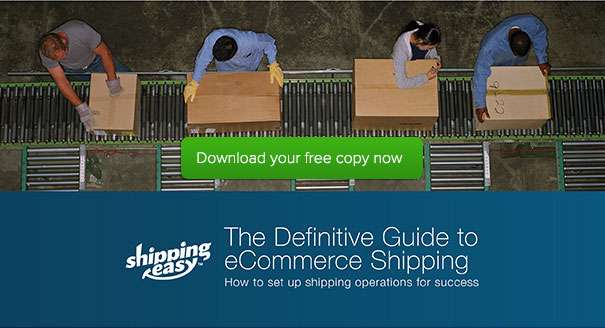Shipping software must integrate with everything
Shipping software downloads and returns data across the entire eCommerce eco-system to keep all systems in sync and fully up to date. It requests store order information, makes real time calls to carriers for shipping rates, validates addresses with verification software, works with various pieces of shipping hardware to print labels and process orders, communicates with label postage technologies to generate labels, and sends messages to customers with shipment tracking details. All of this information must be synchronized and accurate at all times.

Finding a quality shipping solution
To provide maximum value, a shipping solution must be able to integrate with the selling platform, with peripherals in the physical environment, and with other relevant software solutions (e.g., accounting) so order and shipping data can flow seamlessly between systems automatically.
How the data integration capabilities of a shipping solution affect business environments
Selling Environment:
- An open API to download order, product, and customer data to the shipping system
- Receive updates–such as order status, tracking numbers, and inventory levels–back from the shipping system
- If products lend themselves to calculated shipping costs, accommodate product weight/dimension data to facilitate this
- Support capture of customer data/preferences to support desired options downstream; e.g., multiple recipients for a single order, splitting and combining of orders, tiered delivery service levels, etc
Shipping Environment:
- Receive order, product, and customer data from Selling Environment, which will then be managed and processed to ship via the optimal carrier/method
- Integrate with robust address validation software
- Integrate with multiple carrier services to offer:
- Maximum delivery and rate flexibility
- Live rate quoting
- Tracking numbers back to store platform
- Real time label generation and purchase
- Optional “pay on use” return labels
- Delivery updates
- Natively maintain inventory data (or update inventory management system) to communicate stock levels with selling platform and trigger replenishment operations when low threshold is reached
- Communicate appropriate information to accounting and other systems as orders ship
Physical Environment:
- Directly integrate peripherals with Shipping System, for example:
- Scanner(s)
- Scale(s)
- Printer(s)
Related Articles & Resources:
- Choosing an eCommerce Shipping Solution: integration with systems & platforms
- The Shipping Process in 3 Steps
- Guide for eCommerce Business: Bar Code Scanners
- Guide for eCommerce Business: Scales
- Guide for eCommerce Business: Printers
This article was taken from The Definitive Guide to eCommerce Shipping
Request a Demo





